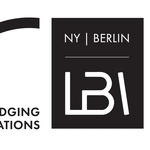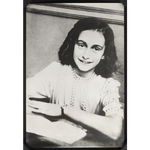Eine Frau: Film Screening
with Director Jeanine Meerapfel



- Date/Time
- –
- Venue
- Center for Jewish History (map)
15 W. 16th St.
New York, NY 10011 - Format
- In person
- Admissions
- LBI/CJH/Partner Members, Students, Seniors: $5
General: $10 - Cosponsors
In Eine Frau (Germany, 2021), filmmaker Jeanine Meerapfel follows the traces of a woman and her life from France to Germany to exile in Argentina, reconstructing the various stages of exile and uncertainty like an archaeologist. Memories and passages from letters merge into the touching narrative of several broken biographies. At the same time, the director reflects on the fragmentary nature of memory. “What is remembered, what is forgotten? And why?”
Eine Frau had its world premiere at the 36th Mar del Plata International Film Festival in Argentina. In 2022, it was shown at numerous film festivals in Europe – including the Thessaloniki Documentary Festival and DOK.fest Munich. It opened the Jewish Film Festival Berlin | Brandenburg (JFBB) and won the prize for intercultural dialogue there.
Meerapfel will join us for a discussion of the film and a light reception after the screening.
About the Filmmaker

Jeanine Meerapfel is a filmmaker, screenwriter and producer. Born in Buenos Aires, Argentina, she attended the city's school of journalism before going on to work as an editor and freelance journalist. From 1964 to 1968, she studied at the Film Institute, Hochschule für Gestaltung, Ulm, Germany, where she was taught by Alexander Kluge and Edgar Reitz. Meerapfel shot her first motion picture, Malou, in 1980. This was followed by award-winning documentary and feature films such as In the Country of my Parents (1981), Amigomío (1995), and many others.
Meerapfel worked as a Professor at the Academy of Media Arts in Cologne, Film Department, from 1990 to 2008. In 2012, her feature film The German Friend, an Argentine-German co-production, was released in cinemas. Together with Floros Floridis, she produced the audiovisual essay Confusion / Diffusion in 2015. In 2019, she also produced together with Floros Floridis the audiovisual essay Moving Sand / Topos. In March 2020, Meerapfel was awarded the Federal Cross of Merit 1st Class for her success as a filmmaker and author as well as her commitment to human rights, freedom of speech and equality and diversity of cultures. In Autumn 2020, she initiated the European Alliance of Academies, an alliance of 60 art academies and institutions that stands up for the freedom of art. The German Federal Association of Film Directors (BVR) has appointed her as honorary president in February 2021. Meerapfel has been a member of the Film and Media Arts Section of the Akademie der Künste since 1998. She was the Deputy Director of this Section from 2012 to 2015. In May 2015 she was elected President of the Akademie der Künste, followed by the re-election in May 2018 and November 2021.
Prizes and awards (a selection): 1981: International Federation of Film Critics (FIPRESCI) Award in Cannes for Malou; 1985: German Film Critics' Award (Deutscher Kritikerpreis) for Melek Leaves; 1989: German Film Award and Argentine Oscar nomination for La Amiga; 2000: Female Artists' Award of the German Federal State of North Rhine-Westphalia (Künstlerinnenpreis des Landes Nordrhein-Westfalen); 2001: special award at the Argentine festival Mar del Plata for Anna's Summer; 2012: Prize of Honour at the International Film Festival Innsbruck.
More information about Meerapfel and her work can be found on her website.




